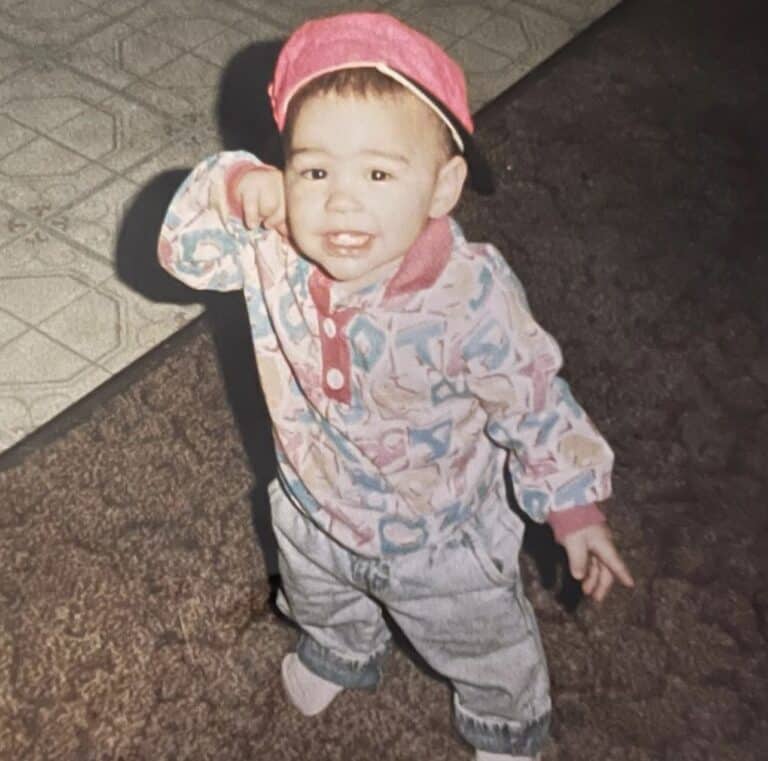As much as people want to say otherwise, the fragility of being human isn’t new. Anxiety is a natural reaction to perceived threats; humans were built to experience anxiety to survive as a species – aka, it’s normal! The threshold between normal anxiety and clinical anxiety is subjective. As for depression, it is, of course, caused by demonic possession and should be treated with beatings, restraint, and starvation. Gotta get those demons out!
Just kidding!
The point is that mental illness has been around for ages. The Netflix docuseries, ‘The Mind, Explained,’ even discusses the early days in the U.S. when women would [literally] lie around doing nothing when their brains weren’t functioning right, and men would go off on solo ventures into the wild to wrestle with their feelings in private.
This post isn’t about the history of mental illness, but I feel it’s important to emphasize that human fragility isn’t new.
The Backstory
In the third week of June, I realized I had never received a refill notification for my Effexor, which I took for panic disorder. Because of my insurance, I could only use one pharmacy to fill this prescription, a mail-order pharmacy. There was still time for the prescription to be filled and mailed to me before I ran out, so I sent my psychiatrist a message in MyChart. However, she was out of the office. The doctor responding to messages didn’t contact me to check which pharmacy to send the meds to (I also had a local pharmacy on file for short-term medications); she just sent it to the local pharmacy. I knew the price would be higher there as this wasn’t a short-term med, but I didn’t expect to hear the pharmacy tech tell me I owed more than $800 and they would not send the script to my mail-order pharmacy for me.
I tried calling my doctor but couldn’t get through to anyone. My [now previous] psychiatrist is part of a more extensive university medical system; talking to anyone who knows anything about that office can be difficult. I thought about how often I told my doctor I didn’t feel Effexor was the right med for me, the fact that the dose increased each time I brought this up, and then I did the math on how much medicine I needed until I could talk to her again. Ultimately, the pharmacist gave me one week of meds for $75. Still expensive, but better than $800…

15 Days
Before you read any further, please do not attempt to do anything like I’m about to describe on your own. It’s dangerous, even with the help of a doctor. 10/10, I do not recommend it.
Over the next several days, I messaged my doctor and called the office with either no response or no helpful response. On July 2, I decided to taper myself off the meds with what I had left. The next day was challenging but manageable. By the evening of July 4, I knew it would be hard, much harder than I imagined.
A similar issue occurred in late March, and I had no meds for 3 days before my mail order arrived. I didn’t realize the hell I was going through those 3 days was due to withdrawals; I thought I was just that crazy without the medicine. My therapist [not my prescribing psychiatrist] enlightened me on anti-depressant withdrawals.
This time, I did extensive research on the withdrawal side effects of Effexor. I learned it is one of the most dangerous anti-depressants to come off of. I still wasn’t prepared for the next 15 days. Because no one wants to read a factual account of someone’s anti-depressant discontinuation syndrome (ADS), let me provide you with an easy-to-read list of what I went through.
- Actively suicidal all 15 days (sorry to everyone reading this now who I told otherwise)
- Enough crying to last a lifetime
- Cold sweats
- Insomnia
- Racing thoughts
- Migraines (not headaches, migraines!)
- Vivid dreams during the micro naps I took
- Nausea
- Vertigo
- Irritability (let’s be honest, I was a bitch for 15 days)
- Loss of coordination
- Brain zaps
Fuck. That’s the only word to describe those 15 days. Those were the darkest days of my life, no exaggeration. I would re-experience past trauma before I will ever voluntarily go through that again.
The irony that I’d re-experience the trauma that put me in a place to be prescribed Effexor, isn’t lost on me.
P.S. I stand by my decision to withhold that I was actively suicidal all 15 days because I will NEVER accept hospitalization and inhumane treatment at the hands of the American Healthcare System due to mental illness. THAT would make me kill myself for real. Plus, I’m not wealthy and need to work. What?! Did you think I didn’t work during those 15 days???

I Wasn’t Okay
I told one person on July 4 what was coming. That individual was supportive at the moment but turned out to let me down every day after. Emotions aren’t something the leading man in my life (my only real supporter) is great with, so I wanted not to tell him, but by the afternoon of July 5, I had to. And then I had to tell a friend who lives nearby and isn’t great with emotions what I was going through so she could check on “man” since he now knew. If nothing else, they could support each other while I tried not to kill myself. (It’s a joke; calm down!)
At some point, I decided to [mostly] stop hiding what was going on. I made an appointment with my therapist and told a few other people. If people knew, I figured I’d be less likely to act on my thoughts. I also showed my vulnerability on Instagram and TikTok because I felt it was important that people know about ADS, a term that had never been uttered to me, even though this wasn’t my first go-round with anti-depressants.
(I understand withdrawals happen when stopping medicine and I had stopped anti-depressants before. This was different.)
I would FaceTime my nephews or cuddle my dogs when things were horrible and kept reminding myself this was all part of the ADS, not how my brain would generally work. If things were especially horrific, I’d sit in a cold shower and cry it out. I did my best to keep my mind and body active.

Back to Fragility
Humans are fragile. We don’t want to be seen that way, but it’s the truth. As life gets more complex, humans are reaching their breaking points. Mental illness isn’t new. What’s new is the pressure to be happy and perform at top-notch all the fucking time. What’s new is having to act like the world isn’t a dumpster fire. I don’t mean “new,” as in this happened overnight. What I mean is, as civilization advances, the expectations for the human mind to keep up are higher than ever. I can’t speak for other healthcare systems, but I can talk loudly about the one in the United States. It’s absolute shit. Doctors who are actually decent AND in-network have limited availability. I lost count of the times my psychiatrist said, “I’m sorry you feel that way,” in a tone that made me feel one step outside of an insane asylum, and then gave me more drugs because she only had 15 minutes allocated to my appointment. It’s not necessarily her fault but rather the result of an overworked system that actually “works” for very few people.
I have a new psychiatrist now who is out of network. Is that expensive? Yes. Do I feel bad that I can afford to pay for this while others suffer? Also, yes. Do I feel bad I have access to a quality therapist I’m sure others need way more than me? Yes. But I have to do what’s best for me, and this is what’s best. My initial consultation with my new doctor was 90 minutes long. She confirmed that Effexor is an incredibly difficult anti-depressant to stop, and she refused to make a diagnosis because she didn’t know me well enough yet. [mind blown] As unrealistic as hope is, I’m hopeful. That’s something I couldn’t have said a few days ago.
Call to Action
If someone is vulnerable enough to tell you they’re having a hard time, don’t say, “I’m sorry,” and leave it at that. Definitely don’t tell them their emotions are too big for you to handle, even if that’s true. Find a better way to say you don’t have the capacity to help at that moment because if they come to YOU with something heavy, they likely trust you. Don’t break that trust. Don’t ask, “Is there anything I can do?” Most people aren’t going to say, “Yes, come sit next to me in silence.” Or, “Yes, come help me clean my house.” This isn’t an attack against anyone who typically leaves the conversation with, “I’m sorry.” Humans have never been taught how to handle these situations. These are suggestions based on my experience as someone who could use support occasionally and as someone who supports others because I know how hard it is not to have…wait for it…support.
If someone who loves and trusts you reaches out for help, here are some suggestions on how to respond.
- Go sit next to them. You don’t have to say a word. Just sit. Hold their hand or hug them in silence.
- Bring them food without asking if they want food. They need the fucking food, and chances are they aren’t eating.
- Help clean up their house so they aren’t physically living in disarray while mentally living in disarray.
- If the person has kids, ask if you can take them for an afternoon.
If you can’t give them a supportive gesture, try the following over a text or phone call.
- “I’m sad to hear about what you’re going through. I’ll think of you and check in again tomorrow/later.”
- “That must be so hard. I’m here if you want to talk. Feel free to call when the burden feels too heavy. I’ll check in later.”
If you say you’ll check in, do it. I will save the linguistic lesson on the words ‘communication’ and ‘community’ for another time. I think you get it.

“Wait, Sam. That’s cool that you told other people how to help me, but how do I help myself?”
I’m glad you asked. Reaching out to someone can be hard because we feel ashamed when we’re in a bad place. Allow me to give you some advice from the person I texted with at 988 when I was at my lowest.
“The negative thoughts we have about ourselves are the fuel for our depression and anxiety. These thoughts come up and bring up a lot of emotion which seems to validate the truth of the thoughts, but these thoughts have far less truth than we think.
Most of our thinking is pointless nonsense. We give it a lot of importance, but it’s mostly not important….
…if we can start to regard these negative thoughts as just nonsense, as unimportant and just thinking, then a lot can change with how we relate to our experiences. It takes practice, and it’s a practice that is difficult when we’re already caught up, and our emotions are running away with us. You’re already very self-aware, which I know feels like a burden, but it’s actually a blessing. Because if you catch these thoughts before they build up that head of steam and can relate to them in this way, then the thoughts lose their power and fade on their own.”
At the end of the day, we all must help ourselves and shouldn’t expect anyone else to fix shit for us. Adults should choose how to move forward with their lives positively and constructively. But also, the fragility of being human is real; humans evolved as social creatures, so we need the support of other humans.
I appreciate the support I received from some of the most unexpected places during those 15 days and the random texts & DMs from unexpected people checking in on me. It was the little things that got me through a dark time.
Until next time…
Sam
Resources:
Moody Bitches by Dr. Julie Holland
My (as in me, Sam) Panic Attack Plan
Sources:
A History of Anxiety: From Hippocrates to DSM
Quality of Life: An Approach Integrating Opportunities, Human Needs, and Subjective Well-Being
